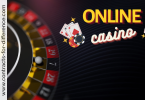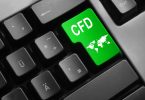By now you should know how I trade and have a good idea of what’s required, in terms of what to look for, what not to look for and what you can expect from trading. You should also be familiar with some of the products that you can trade using the techniques that you have learned so far.
Remember, trading is a life long learning curve, and I think too many people don’t realise, forget or blindly ignore this truth. Think of it this way; the methods that we use as traders are based on technical analysis. We use the odd bit of fundamental data, when we have to and it seems appropriate, but our primary concern and practice is deeply rooted in the art and science of technical analysis – notice I said ‘art’ and science.
Technical analysis is part art and part the development of techniques that are prosaic in their nature, but in their application do possess a need to be translated in a more perceptive way; which combination is almost contradictory – prosaic or lacking imagination v. perceptive or creative. We use overly scientific methods of calculating charts and information, but what many forget is that the application and translation of that data has to be part calculated and part artistic. Where many go wrong is that they feel that all they have to do to become successful as a trader is have a million technical indicators running. They think that if they read that information as given, and trade the results accordingly, they will in turn succeed as traders. That method of trading will result in a big fat zero in long term success.
Indeed, many trading plans are put forward on such a basis. You are encouraged to combine indicators in every which way that you can, and apply them to the last five or, preferably, ten years of historical data, and come up with a selection of indicators that give you the performance you need to make a profit. There is a fundamental flaw with such a robotic approach, and that is that other traders are trying to do the same thing, so you are trying to hit a moving target. What worked ten years ago will not work in the same way today, because traders have spotted those movements and affect the results. Undoubtedly, there are certain factors which are compelled by the mechanics of the market, but with all the professional traders trying to discover the next big way of winning, you may be disappointed by just using this historic approach.
Let me expand this further, and explain why it is incredibly important to never stop learning as a trader, and to continually push yourself in the application and understanding of your new methods of trading, in your current trading setup.
When we read charts, we are essentially looking at sentiment. Let’s look at what the Oxford Dictionary says about sentiment, so we do fully understand each other;
sentiment
1.) a view of or attitude toward a situation or event; an opinion : I agree with your senti-ments regarding the road bridge.
general feeling or opinion : the council sought steps to control the rise of racist sentiment.
2.) a feeling or emotion : an intense sentiment of horror. See note at emotion.
exaggerated and self-indulgent feelings of tenderness, sadness, or nostalgia : many of the appeals rely on treacly sentiment.
How I am referring to Sentiment is in the section numbered 1 and 2, the first part of 2 is – Emotion, which I will expand on here. Looking further into this, we un-derstand the major aspects of emotion in trading to be fear and greed, which are some of our most deep rooted and strongest emotions. These are so basic to our instincts that they have been around since we first managed to stand on two feet and say ‘Ogg…me…ogg…grunt…go Short on…dinosaur futures…’. This is how all the markets are driven, each and every day. Granted, there’s far less ‘ogg’ speak; then again, if you’ve spoken to some brokers, you’d probably disagree.
What many fail to realise is that they are trying to use tools, such as mathematical algorithms, to gauge an ever shifting sand of sentiment. The sentiment is constantly changing due to events found in the news, but, by the time the news is released, the markets may have already reflected that news in the chart, and quite often have. You should already understand why that is, but I will cover that more later on. Sentiment can also change for reasons that are not in published news, but in a general feeling, or rumours on the street.
In many respects, I could probably write a whole book on trading psychology and market psychology. What I want you to understand is that we’re dealing with something that is ever changing and shifting. We need to understand this universal truth and to help us along the way with that understanding, we should always, constantly, be striving to study as much as we can. That’s why it is important that, as a trader, you spend a proportion of your profits each year on your education as a trader. One rule of thumb, depending of course on how well you’re doing, is that 5% of your profits each year should go towards expanding your own knowledge and methods further.
I learned this the hard way a long time ago. When I started to get things sorted, and my trading began to result in profit, sometimes a great deal of profit, I began to simply concentrate on trading. Nothing wrong with that I hear you shout – granted, you have a point, at least for the short term. However, what I began to find was that I became stale and complacent, almost lazy and apathetic, towards my trading education; because I was making money, why should I bother to continue learning? The funny and rather ironic lesson is that, by not learning and pushing yourself, you do become bored as a trader. This boredom will not show itself right away in your trading, but over time, apathy and complacency slip in to your trading, you start to make mistakes, you start to not even notice it and, over time, your trading becomes less effective.
What I found then was that I should keep active, keep learning, and keep excited about trading. By pushing myself at each turn, by constantly developing myself as a trader, I found that I became more successful. I also became more passionate about trading and about teaching others to trade – hence the birth of this website.
So when it becomes hard, which it will, studying new methods and pushing yourself, think of this as a means of helping you to become a more rounded and successful trader.







